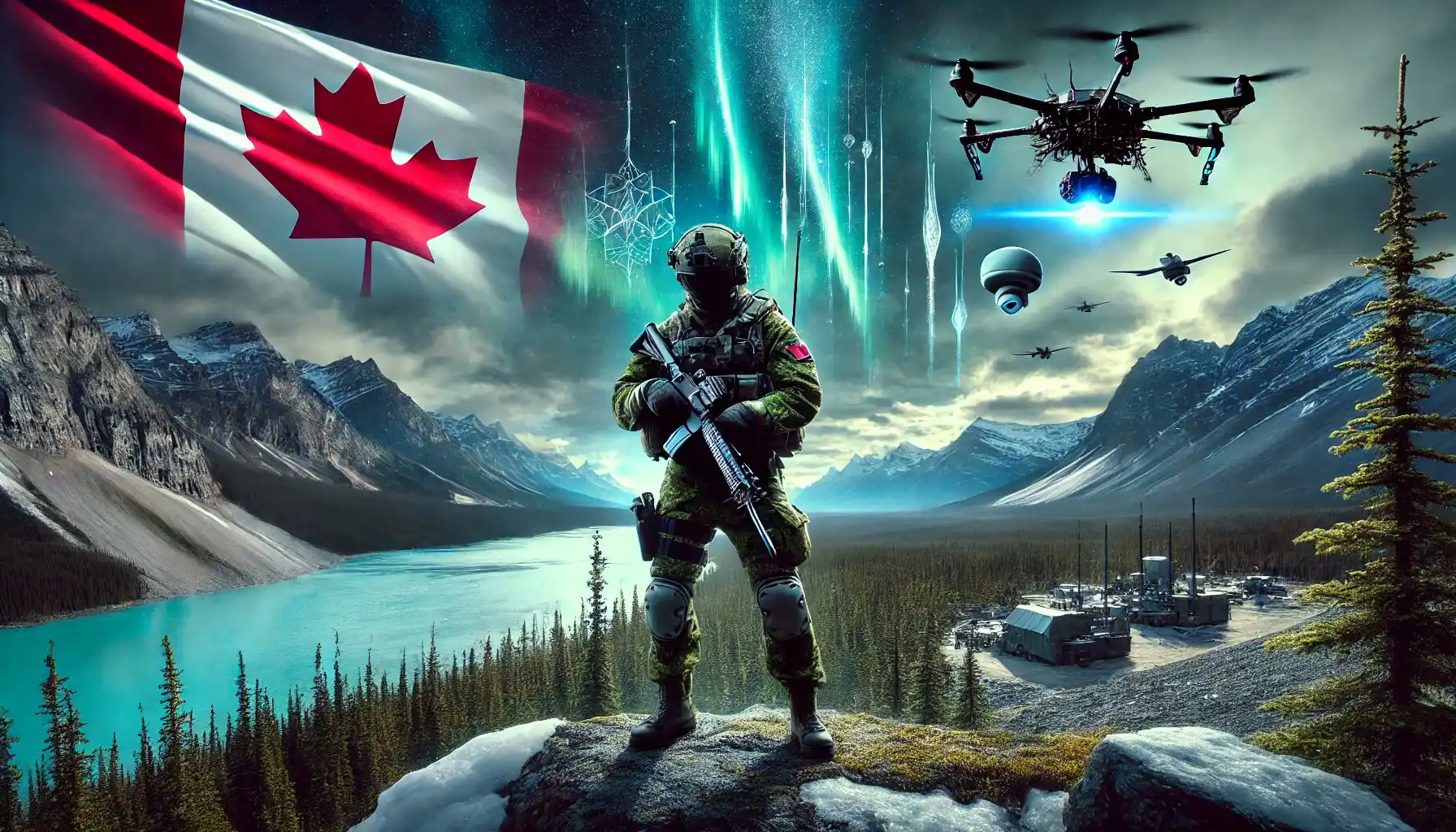The suggestion that the only country Canada needs to worry about invading it is the United States oversimplifies a complex reality. While the U.S. is geographically and economically dominant, the dynamics between Canada and the U.S. are historically cooperative rather than adversarial. However, relying solely on this assumption creates significant strategic vulnerabilities.
Let’s examine this in detail:
1. The U.S. as a Neighbour: Historical Context and Strategic Assumptions
-
Cooperative History: Canada and the U.S. share a long history of peaceful coexistence and robust economic and military partnerships. The North American Aerospace Defense Command (NORAD) is a prime example of this collaboration. There is no recent precedent for outright hostility.
-
Economic Interdependence: The deeply intertwined economies of Canada and the U.S. make a military invasion counterproductive. A conflict would harm both nations and destabilize the broader North American economy.
However, history shows us that relationships between nations can change drastically. Allies can become adversaries due to shifts in leadership, economic crises, or global power realignments. While improbable now, it is not impossible in the long term.
2. Ignoring Other Threats: A Flawed Perspective
Focusing exclusively on the U.S. as a potential threat dismisses the broader range of challenges Canada faces:
-
Global Multi-polarity: In a world with emerging powers like China, Russia, and regional blocs like BRICS, assuming the U.S. is Canada’s sole concern is naïve. These powers could exploit Canada’s resources and strategic geography.
-
Arctic Sovereignty: The Arctic is becoming a hotspot for geopolitical competition. Nations like Russia and China have shown significant interest in the region, which Canada claims but struggles to defend.
-
Non-State Actors: Criminal networks, cyber warfare groups, and ideological subversive elements pose unique threats that cannot be countered by assuming the U.S. will always protect Canada.
3. Could the U.S. Ever Be a Threat?
While unlikely, the U.S. could become a strategic competitor under certain circumstances:
-
Resource Scarcity: If global shortages of resources like water, oil, or rare earth minerals intensify, the U.S. might act to secure Canadian resources, whether through coercion or more aggressive means.
-
Shifts in Leadership: A populist or isolationist U.S. administration could de-prioritize its alliances, destabilizing North America’s security framework. If internal U.S. politics become highly polarized, a scapegoat or resource-rich neighbour could become a target.
-
Economic Pressures: Trade disputes or economic crises might strain relations, turning competition into hostility.
The point is not to suggest that the U.S. is Canada’s enemy, but rather to recognize that no alliance is immune to strain or re-evaluation. History is replete with examples of partnerships that deteriorated under shifting circumstances.
4. Strategic Imperative: Canada Must Rely on Itself
Whether the threat comes from the U.S., Russia, China, or another actor, Canada must prepare for self-reliance. Security based on assumptions of eternal friendship is not a strategy — it’s a gamble. National defense isn’t about preparing for the most likely scenario; it’s about preparing for the worst-case scenario.
The broader problem isn’t just a single threat from one neighbour — it’s that Canadians have been conditioned to believe that no threat exists at all. This leaves the nation unprepared for both external aggression and internal subversion.
5. Conclusion
The notion that Canada only needs to worry about the U.S. is shortsighted. While the U.S. is the most powerful actor in Canada’s immediate neighbourhood, a secure national strategy must account for a wide spectrum of risks. Focusing exclusively on the U.S. as a potential adversary dismisses the broader, interconnected threats emerging in the 21st century.
Canada’s path forward lies in building robust military and technological capacities, fortifying Arctic defenses, and fostering independence in national security.
The best way to maintain peace and sovereignty is to be strong enough that no potential adversary — whether the U.S., Russia, or anyone else — considers aggression worthwhile.

Related Content:
SGT Military Page: https://skillsgaptrainer.com/category/military-science/
SGT Communication Page: https://skillsgaptrainer.com/category/communications/
To see our Donate Page, click https://skillsgaptrainer.com/donate
To see our YouTube Channel, click https://www.youtube.com/@skillsgaptrainer